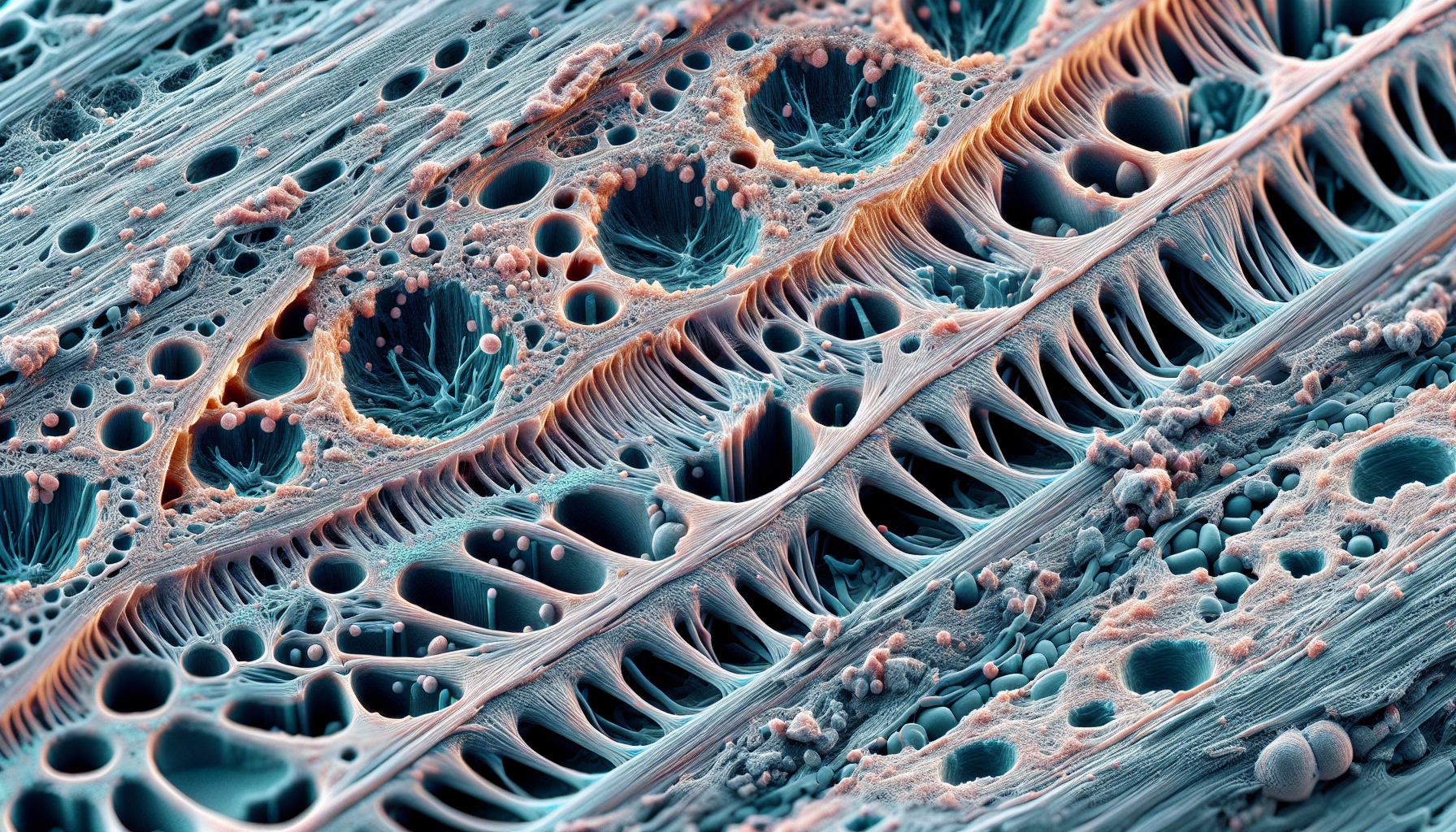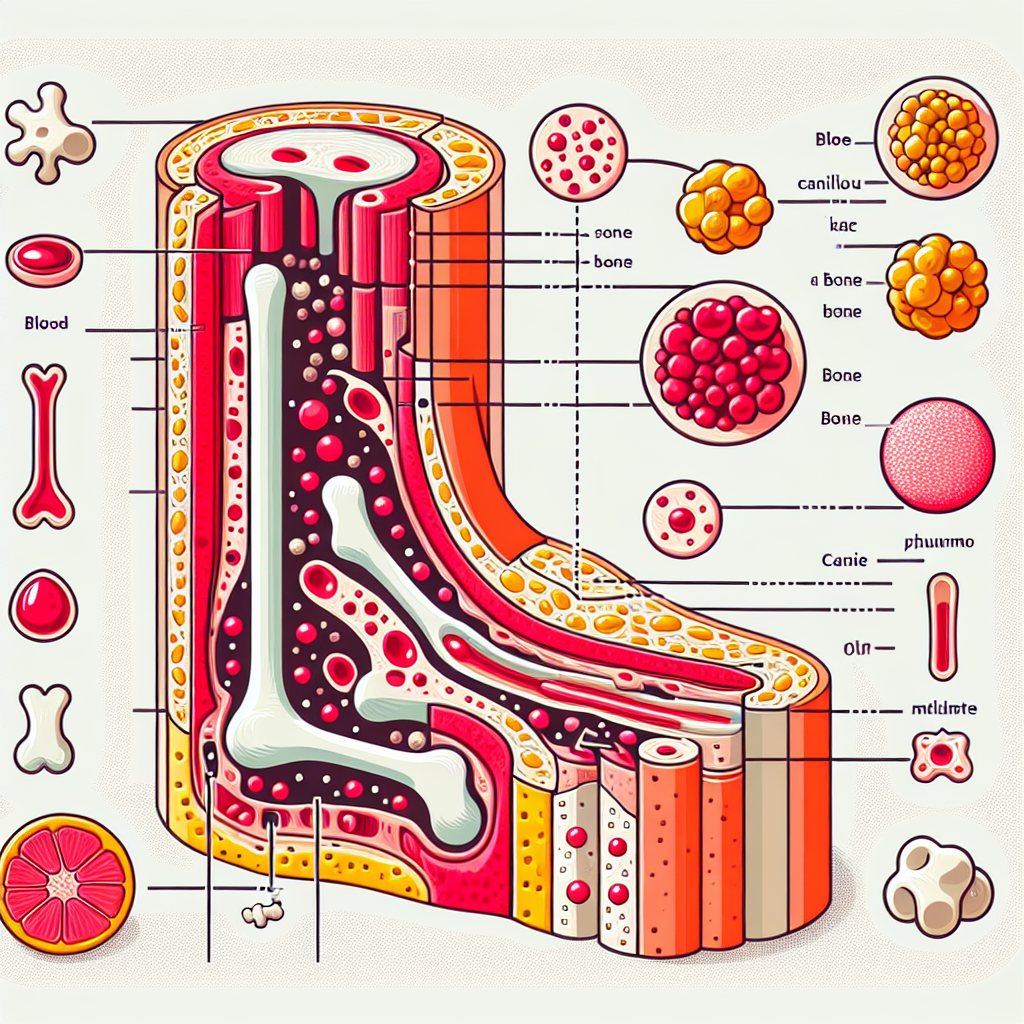Maintaining strong and healthy bones is a complex process that requires more than just calcium and vitamin D. An often-overlooked mineral in bone health is silicon—a trace element found in various foods and responsible for important functions within the body, particularly in bone formation and maintenance. This article will delve into the significance of silicon for bone health, explore its sources, and its role in a holistic approach to maintaining bone integrity throughout life.
Understanding the Role of Silicon in Bone Health
Silicon is a mineral that, until recently, was not widely recognized for its role in bone health. It is involved in the formation of bone by influencing the synthesis and stabilizing the structure of collagen and proteoglycans, which are crucial components of the bone matrix. Bone health is multifaceted, and ensuring an adequate intake of silicon is an important part of a comprehensive bone health strategy.
Collagen and Bone Strength
Collagen is the main protein found in bones, providing a framework that contributes to the strength and flexibility of bone. Silicon is believed to aid in the formation of cross-links between collagen strands, enhancing the stability and resistance of the bone matrix. Studies have suggested that a silicon-deficient diet can lead to reduced collagen formation and bone defects.
Proteoglycans and Bone Resilience
Proteoglycans are another key component of the bone matrix that contribute to bone resilience and repair. They bind with water to create a gel-like substance that helps to withstand compressive forces. Silicon is involved in the synthesis of proteoglycans, again underlining its importance in maintaining the structural integrity of bone.
Dietary Sources of Silicon
The best way to ensure adequate silicon intake is through a balanced diet. Food sources of silicon include whole grains, cereals, fruits, vegetables, and beverages like beer and mineral water. It is important to note that the bioavailability of silicon differs among foods, with higher bioavailability found in foods where silicon is present as orthosilicic acid.
Silicon Supplementation and Bone Health
For those unable to meet their silicon needs through diet alone, supplementation may be considered. Silicon supplements are typically available in the form of choline-stabilized orthosilicic acid or other bioavailable forms. It is advisable to consult with healthcare professionals before starting any supplementation, as they can provide guidance based on individual health needs and conditions.
Silicon’s Synergistic Relationship with Other Nutrients
Silicon does not work in isolation but rather in conjunction with other nutrients that support bone health. For example, it interacts with calcium, magnesium, vitamin D, and vitamin K2, all of which play vital roles in bone metabolism. Understanding this interplay is crucial in developing a holistic approach to bone health.
Impact on Calcium and Magnesium
Calcium is well-known for its pivotal role in bone health, but its absorption and utilization are influenced by other nutrients, including silicon. Some evidence suggests that silicon may enhance the metabolic actions of calcium and magnesium in bone tissue, thus improving bone health.
Vitamin D and K2 Interactions
Vitamin D is essential for calcium absorption, while vitamin K2 ensures that calcium is deposited in the bones rather than in the arteries. Silicon’s role in the synthesis of osteoblasts—the cells responsible for forming new bone—may be enhanced by the presence of these vitamins, further emphasizing the importance of a nutrient-rich diet or appropriate supplementation for optimal bone health.
Silicon and Age-Related Bone Loss
Age-related bone loss is a significant health concern, particularly for postmenopausal women. Silicon intake is especially important during this time as it can contribute to bone density maintenance. For a deeper understanding of this issue, the article "Bone Health in Menopausal Women: Risks and Solutions" provides valuable insights.
Research and Studies on Silicon and Bone Health
Numerous studies have investigated the role of silicon in bone health. For instance, a study published in the Journal of Bone and Mineral Research found a positive association between dietary silicon intake and bone mineral density in men and premenopausal women. Another study in the journal Nutrition Reviews highlighted the potential of silicon as a therapeutic agent in bone disorders.
For further reading on the impact of nutrients on bone health, explore the connection between protein intake and bone strength in "The Role of Protein in Bone Strength and Repair", or consider the influence of body weight on bone density as detailed in "The Influence of Body Weight on Bone Density".
Conclusion
The significance of silicon for bone health cannot be overstated. From its role in collagen and proteoglycan synthesis to its interactions with other essential nutrients, silicon is a key player in maintaining bone strength and resilience. Ensuring adequate silicon intake, whether through diet or supplementation, is an important aspect of a holistic approach to bone health.
For those looking to understand more about the intricacies of bone health and to keep their bones strong throughout their lives, it’s important to consult with healthcare providers and consider the wealth of information available on specialized resources.
Incorporating a silicon-rich diet, understanding the nutrient interactions that support bone health, and staying informed through current research are all steps toward a sturdy skeletal framework. Remember, the health of your bones today lays the foundation for your mobility and vitality in the future.



